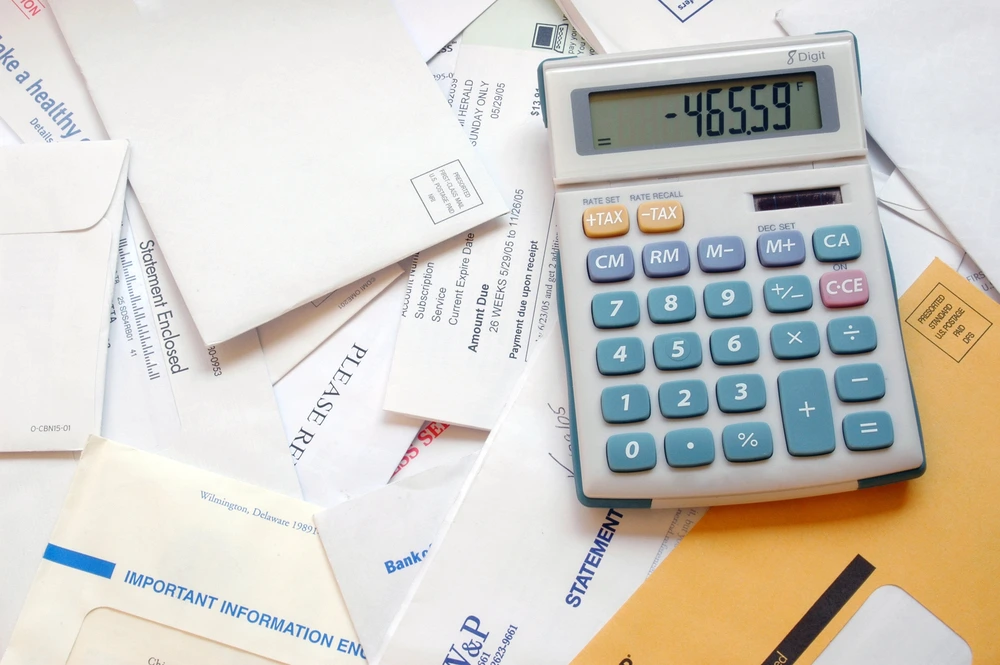
Divorce is a difficult time, and the financial difficulties are part of what make it so hard. When a couple divorces in California, the assets they own are divided equally unless there is a specific reason to divide them differently. The same is true of their debts, and you’ll want to talk to a divorce attorney in San Mateo to find out more details of what this will mean for your specific situation.
What Happens to Joint Debt During Divorce?
California is what is known as a “community property” state. This means that the state recognizes marriage as creating a “community,” so that all property and debt that either party acquires during the course of the marriage is considered to belong to the whole community, i.e., both spouses.
There are some exceptions with “separate property. This is any property or debt that one of the spouses had before they got married or that they acquired after the two separated (even if there was not yet a formal divorce in place.) Separate property is also anything gifted or inherited to just one of the spouses and any debt that one spouse acquired only in their own name with separate funds and which was not used for the benefit of the marriage.
For example, if one partner used their own inheritance money as a down payment on a mortgage for a shared marital home, that mortgage becomes shared debt. But if that partner used inheritance money as a down payment for a personal sports car, which was not used by the other partner and didn’t contribute to the household by functioning as a regular home-use vehicle, then the remaining debt on the sports car would likely be considered to belong solely to the spouse who bought it.
How Debt Is Shared
In our state, debt is shared in the same way as assets are. When a couple divorces, all property and all debts are shared 50-50. There are some possible exceptions to this, but in most cases both spouses are equally responsible for any debt incurred during the marriage. This even includes credit cards or loans taken out in the name of just one of the partners. If a spouse uses their own separate property to acquire debt, like a mortgage, or if one spouse goes into debt solely for their own benefit and the debt in no way benefits the marriage, then that debt belongs only to the spouse who incurred it.
The court will need to evaluate the debt to decide how it should be classified, and you will want to talk to a lawyer about how to prove that you should not be responsible if your spouse has taken out debt solely for their own benefit. Another possible complication when figuring debt comes when spouses commingle their assets or debts. This happens when separate property or separate debt is mixed in with community property.
Student debt falls into a special category, and the courts will consider whether the education that this debt is paying for benefited just one spouse or both. For example, if one party in the marriage has gotten training that allows them to substantially improve their earning potential, but they have not yet gotten a job and improved the lifestyle of the marriage through this education, then that debt is likely their own. But if one party has gotten training that allows them to improve their earning potential, and they went on to work a high-paying job for 20 years, and this allowed both spouses to enjoy a high standard of living, then the court is likely to rule that this debt has materially benefited both parties, and thus both parties are responsible for whatever student debt remains.
It’s important to understand that it is the duty of the person who wants to claim separate property to prove that the property is separate, and it’s the duty of a spouse who wants to claim immunity from a debt to prove that the debt belongs to the other spouse alone. You will need the help of a lawyer to bring clear proof of either one of these things.
How the Court Makes Decisions
The court will look at a couple of things as they make decisions about debt. The first is when it was acquired; the second is whether there have been any changes to the law since it was acquired, as, in most cases, the court will follow the laws that were in place at the time the debt was acquired rather than retroactively applying current law; and, finally, the court will look at how the debt was used.
The date that the couple separated is critical here. Once a couple separates, all assets that are acquired after that time belong to the person who acquired them, and all debts incurred by either party belong to that party alone. California uses a test to determine precisely when the date of separation was, and there are two elements to it which must both be satisfied.
First, the couple must’ve separated in a meaningful way physically. This usually means that one of the two has moved out of the house, but it can also mean that they begin sleeping separately. However, that in itself is not enough: one of the spouses must also have had the intent to end the marriage. This means if a couple separates on a trial basis to see if they can work things out later, that isn’t considered the date of separation for the purposes of dividing assets and debt.
What If There Are More Debts Than Assets?
If the debts of your marriage actually exceed the assets that you have, the court will typically try to divide the debt in a way that seems just. This means that rather than divide the debt perfectly in half, the court is likely to assign more of the debt to whichever of the spouses is in a better position to pay it.
Bankruptcy
In some cases, one spouse, or both, may believe that it is best to declare bankruptcy. However, it’s important to know that this can affect your divorce settlement, and it’s a good idea to talk to a lawyer before declaring bankruptcy.
For one thing, if you file for bankruptcy before the divorce is finalized, any shared community property that is exempt from seizure by a creditor becomes safe, but any non-exempt property is still up for grabs, regardless of which spouse declared bankruptcy. This can greatly complicate things. If you wait until after the divorce, then all property is separate. Creditors cannot come after the property of a person whose ex-spouse, from whom they are legally divorced, has declared bankruptcy.
Work With a Divorce Lawyer in San Mateo
The laws on divorce can be quite complicated in California, and whether you have complicated assets, a lot of debt, or are facing an acrimonious separation where a battle is likely, having a lawyer is always wise and in your best interests. Reach out to us at the Seeley Family Law Practice APC in San Mateo today for experienced help anywhere in the Bay Area.
